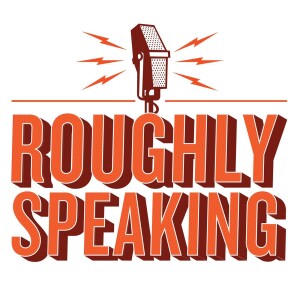
Maryland crabs, Maine lobsters, Atlantic menhaden -- sustaining fisheries on a crowded, warming planet (episode 413)
 2018-07-31
2018-07-31
Download
Right click and do "save link as"
With climate change, population growth and an insatiable global demand for seafood, how can we continue to harvest fish without destroying the fragile ecosystems of the oceans and bays? And should Americans eat more fish and shellfish for the sake of their health and the environment?In this episode of Roughly Speaking: An update on the status of the Chesapeake blue crab, a deep dive into the Omega-3 industry and the merits of seafood, and a look at effect of warming waters on Maine’s lobster harvest.Paul Greenberg, a best-selling author of books on fish and the seafood industry, talks about the demand for menhaden, the most heavily harvested fish on the East Coast, and the multi-billion industry connected to the Omega-3 fatty acids that come from the oily fish. Greenberg’s new book, “The Omega Principle,” argues that Americans could have healthier, eco-friendly diets by eating more seafood, and, he says, there’s a way to increase fish consumption without destroying the oceans.Christopher White grew up in the Chesapeake region and has written three books about the bay. His latest work took White to Stonington, Maine for a look at the lobster industry and how climate change has affected that fishery. His new book, “The Last Lobster,” tells a fascinating story that explains the lobster boom of recent years, and tries to chart what the future holds for lobstering as ocean temperatures rise.
view more
More Episodes
012345678910111213141516171819
Create your
podcast in
minutes
- Full-featured podcast site
- Unlimited storage and bandwidth
- Comprehensive podcast stats
- Distribute to Apple Podcasts, Spotify, and more
- Make money with your podcast
It is Free
- Privacy Policy
- Cookie Policy
- Terms of Use
- Consent Preferences
- Copyright © 2015-2024 Podbean.com





